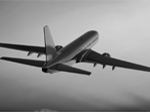Just 3 years ago it seemed that ULD management was becoming a forgotten function, certainly everybody knows the industry needs ULD but nobody seemed willing or able to tackle the serious issues facing ULD operators such as poor compliance and excessive damage.
Today, 3 years later a huge change has taken place, and we must highlight the commitment of time and resources by IATA in driving the process that has delivered these changes.
ULD CARE, formerly IULDUG, has developed and grown due in part to the overall changes in approach adopted by IATA. ULD CARE which stands for ULD Compliance, Airworthiness, Regulations and Education, is looking forward to fulfilling its corporate objectives in these areas.
IATA does not have subject experts in all areas of ULD management, and must rely on voluntary participation by individuals having the expertise and time to work on drafting, discussing and reviewing new material. Often, for these people, this is in addition to their very demanding “day jobs”; and often, given the global nature of aviation, it means participating in global conference calls and webinars at far from business hours!
The current frame work for ULD management within IATA includes the: ULD Panel, the ULD Operational Advisory Group (ULD OAG) and the ULD Technical Panel.
The ULD Panel. This is the highest level group, who are responsible for the final review and approval of any material before it is published. The membership is made up of voting airline representatives and non-voting other parties (who must be IATA Strategic Partners). In addition to conference calls, the ULD Panel meets face to face twice a year.
Reporting to the ULD Panel are 2 groups:
The ULD Operational Advisory Group. Its members are drawn from as broad a spectrum of the entire air cargo industry as possible. The group has the task of developing and recommending to the ULD Panel, standards and procedures that are relevant and of value to the full range of ULD activities.
The ULD Technical Advisory Panel. This body, whose members are mainly from equipment manufacturers, are responsible for reviewing, from a technical point of view, any standards created in the ULD Panel.
In addition to this committee activity IATA also supports ULD activity from within their cargo process development area. They connect ULD management to other sections of IATA such as training and publications. They also maintain ULD content in the many IATA standards and publications like the Airport Handling Manual (AHM) the IATA Operational Safety Audit (IOSA) and the IATA Safety Audit for Ground Operations (ISAGO) audit processes.
This newsletter will endeavour to keep our readers educated of IATA activities as they occur, and the recently published IATA ULD Regulations will be featured on a regular basis.
The IATA ULD Regulations received considerable exposure at the IATA World Cargo Symposium in Doha in early March. A pre-conference ULD Regulations workshop and speaking slots in both the Regulations and Operations Tracks of this widely attended conference put ULD management in the spotlight. Ad hoc discussions were even held to discuss the creation of training materials, and this process is also now well launched. The response to these initiatives was positive. For example ground handlers were delighted to see that a single global standard could replace the deluge of different instructions they currently receive from their different customers. A sideline meeting was also held to plan the creation of training material, and this process is now well launched.
We strongly encourage readers to take part in ULD CARE and IATA ULD activities by joining committees and participating in the ongoing tasks of keeping standards, procedures and training relevant to the needs of the industry.



Comments are closed.